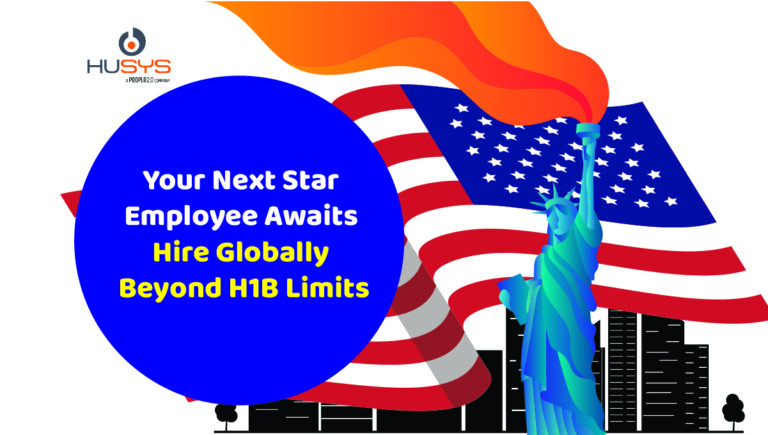2024 is almost here, bringing new opportunities and challenges for global HR leaders seeking to create a positive impact within their organizations. With disruption and change accelerating, it’s more important than ever to establish clear direction through well-defined goals. But what goals for global HR professionals can drive progress in 2024 and beyond?
This post spotlights 10 high-level yet actionable goals to help global HR leaders focus their efforts for maximum impact. While specific initiatives will differ across companies, these goals for global HR professionals represent vital areas to progress in the new year.
Enhancing Employee Engagement
Employee engagement has become a critical focus area for HR in a post-pandemic world. Recent surveys reveal some concerning trends – 44% of employees say they’ve felt high stress daily, and more than half express intent to leave their jobs. With “quiet quitting” on the rise, revitalizing engagement is imperative.
Here are some tips to boost employee engagement.
- Rethink onboarding processes to improve new hire welcome and sense of belonging.
- Provide forums for open dialogue between leadership and employees.
- Conduct regular pulse surveys to monitor and address engagement levels.
- Offer upskilling, special projects, and career development opportunities.
- Celebrate employee milestones and achievements.
- Promote work-life balance through flexible work options.
- Empower managers to check in regularly with direct reports.
Supporting Employees Through the Cost-of-Living Crisis
With inflation rising globally, employees are facing mounting financial pressures from increased costs of living. Surveys show many are struggling, with 33% meeting commitments but constantly struggling and 16% signaling severe financial distress. While budgets may be tight, looking at creative ways to ease the burden on employees will pay dividends in engagement, retention, and productivity during turbulent times.
Consider negotiating discounted services and products for employees through corporate partnerships – like gym memberships, transportation, shopping vouchers, and other popular items. Explore enhancing financial benefits as well, like discounted mortgages through employee schemes.
Prioritizing Workplace Well-Being
As employee burnout reaches critical levels, well-being programs are vital for engagement and resilience. In fact, mental health is one of the biggest challenges impacting organizations today. Taking a holistic, proactive approach to nurturing workforce well-being will pay dividends across engagement, productivity, and retention. Here are some tips for prioritizing workplace well-being as a part of goals for global HR professionals.
- Proactively assess workforce stress levels and satisfaction
- Offer access to mental health supports like counseling apps.
- Encourage usage of vacation time for rest and recovery
- Train managers to identify signs of burnout.
- Promote healthy habits through education, incentives, events.
- Set boundaries around after-hours work and emails.
- Foster open dialogue around mental health without judgment
Reimagining Performance Management
Traditional annual performance reviews are no longer serving the needs of today’s dynamic workplaces. Employees crave more regular feedback and coaching tied to growth rather than evaluation. 37% of workers said performance management is an outright failure in their company.
Thus, HR leaders need to pioneer new performance models for the future of work. Begin with aligning team goals to each individual and evaluating skills development and behaviors, not just outcomes. Additionally, make recognition and rewards event-driven to enhance engagement.
Expand Your Business Without Settingup Any Entity in 150+ Locations

Building Employee Development Programs
With rapidly evolving job skills and demands, development opportunities have become a key driver of employee retention. HR professionals must make learning and career growth a high priority in 2024. By making development more self-directed, personalized, and aligned with individual goals, you can deliver high-impact programs. Here are some tips.
- Offer self-directed online learning platforms with microlearning, videos, podcasts.
- Provide access to conferences, industry events, and certification programs.
- Create mentorship and coaching programs to share knowledge.
- Develop skills matrices and templates for individual development plans.
- Conduct training needs analysis and skills gap audits
- Offer immersive development opportunities like global assignments.
- Partner with external training providers to diversify offerings.
- Promote a continuous learning culture through incentives and recognition.
Embracing a People-First Approach
With constant business disruptions and change, it’s easy for organizations to slip into transactional relationships with employees focused on short-term productivity over human needs. HR leaders must create work cultures in a more people-centered direction.
Rethink policies, programs, tools, and spaces to better support work-life balance, belonging, growth, and flexibility. Bring employee voices into planning conversations to ground decisions in real needs. Set people focused KPIs to reinforce new cultural norms.
Challenge outdated assumptions about productivity that lack empathy. While this cultural shift takes time, HR can accelerate it by equipping leaders and teams to put people first through ongoing education, influence, and guidance.
Unlocking AI Automation and Data-Driven Decisions
Harnessing the power of AI automation and data-driven decisions is paramount for achieving goals for global HR professionals. They can unlock the potential of AI automation and data-driven decisions, driving efficiency and effectiveness in their HR operations. Here’s how.
- Determine which HR processes can benefit most from automation and data-driven insights (e.g., recruitment, onboarding, or performance evaluations).
- Establish clear objectives for how AI and data-driven decisions will improve HR processes and outcomes.
- Invest in HRIS platforms with analytics dashboards for real-time workforce insights.
- Ensure algorithms are fair and transparent and protect privacy.
- Regularly update strategies to align with evolving HR needs and tech advancements.
Driving Climate Change Adoption
The threat of climate change is driving bolder corporate action on environmental sustainability. HR can play a key role in accelerating the adoption of eco-friendly practices company-wide. This starts with forming cross-functional teams to thoroughly assess the organization’s carbon footprint across operations, supply chain, and transportation and identify the biggest areas for potential reduction.
Additionally, provide learning resources and workshops on sustainability for all employees to build crucial engagement, awareness, and capability for driving change. You can also consider partnering with nonprofit organizations on green initiatives to bring PR.
9 Employee Retention Strategies That Actually Work
Revitalizing Employee Benefits
Today’s talent expects personalized, flexible benefits that support their diverse needs. But costs are mounting, and engagement with current programs is lagging. By taking a strategic, creative view of benefits, HR can deliver programs that provide value and strengthen the employee value proposition.
- Benchmark competitor offerings and survey employees to identify new benefits to meet needs.
- Negotiate with vendors to optimize costs without compromising coverage.
- Offer flexibility like plan choices or credits to select personalized options.
- Boost financial wellness through retirement matching, student loan assistance.
- Add offerings like pet insurance that provide unique value.
- Promote benefits through videos, testimonials, and interactive tools.
Crafting a Strategic Vision
A strategic vision is your compass in a dynamic world. Picture an upcoming project—do your employees have the skills? If not, empower them through training or recruit fresh talent. Similarly, envision market trends and adapt HR strategies proactively.
Take another example. Do you have plans to expand to different markets? Do you have the expertise to navigate the complex laws and regulations of various countries? If not, how do you plan to manage that? Using internal teams or outsourcing HR to a global PEO services provider?
With a strategic vision, HR isn’t just preparing for the future; it’s actively shaping it, ensuring your organization’s success.
Conclusion
In 2024, HR professionals will have a unique opportunity to lead, innovate, and inspire change. Embracing SMART goals for global HR professionals, fostering employee engagement, and harnessing emerging technologies are just some of the avenues that can reshape the industry. As we navigate the evolving world of work, remember that the most successful HRs are those that adapt, empower, and put people at the heart of the organization.




